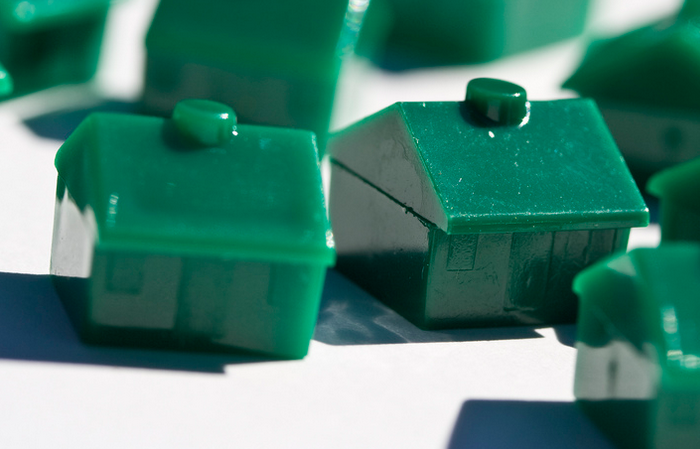
House prices hit their peak in the summer and will ease throughout the rest of the year to close 4.5% higher than 12 months ago with a record 1.5 million homes having changed hands, according to Hamptons.
A combination of low interest rates, the return of high loan-to-value mortgages, and consumer demand for more space and greater work flexibility sparked by the pandemic, will see house prices rise over the next three years, says the estate agent’s Housing Market Forecasts report.
It says “a second wave of lockdown-induced demand” will see home prices rise by 3.5% in 2022, 3% in 2023 and 2.5% in 2024.
This will mark the end of a housing cycle, which began in 2008, that the survey says typically last 16 years.
The report points to the Office for National Statistics data for evidence of slowing house prices this year. It showed that house prices across the country rose by 8% in the 12 months to July, down from a peak of 13.2% in June.
The Hamptons report says that the end of the stamp duty holiday combined with the fact that house prices were already recovering at the end of last year means it expects price growth to soften to 4.5% in the final quarter of 2021.
This will leave the average price of a home in the UK at £258,000 in December, a similar level to July.
In 2022, the report says: “The desire for more space and the flexibility for workers to split their time between the home and office will continue to stimulate the market in 2022.
“Equity-rich homeowners have dominated property market activity since the start of the pandemic, but we expect a second wave of lockdown-induced demand from those who have been unable to move this year.”
Similar pressures will drive price growth in 2023 and 2024.
A record-breaking first half of the year means that more homes will have sold in 2021 than in any year since 2007, with the survey forecasting 1.5 million completions.
The report says: “In 2022, activity will be supported by households who have been unable to move home in 2021 as a result of affordability pressures, job uncertainty, or because they could not find a suitable property.
“First-time buyer numbers should increase next year as the rates on higher loan-to-value mortgage deals become cheaper.”
It forecasts 1.25 million transactions in 2022.
And adds that “a growing economy and low-interest rates” will see completions hit 1.3 million in 2023 and 2024.
The report expects rents to rise by 3% this year.
But adds: “We forecast that the rapid pace of growth in the rental market will slow in 2022.
“But the rate of increase should still be above pre-pandemic levels, supported by tenants’ willingness to pay for extra space and by unprecedentedly low levels of stock.”
It forecasts that rents will rise by an average of 2.5% in 2022, but adds that further “growth will be dictated by what happens to peoples’ incomes in 2023 and 2024”.
Hamptons head of research Aneisha Beveridge says: “The housing market has confounded expectations and forecasts in past months.
“Back in the autumn of 2020, such were the economic challenges being faced that we could not have envisaged the extraordinary demand for relocation which we have seen this year.
“But there has been a huge attitudinal change towards property, which cannot be attributed to the stamp duty holiday alone.
“People now place a higher value on their homes, having have spent more time in them than ever before.
“Flexible and remote working, which look set to continue, have encouraged households to make bigger moves.
“As a result, more homes are likely to have been sold in 2021 than in any year since 2007.
“This is why we also think housing activity will surpass pre-pandemic times in 2022 and beyond.
“The pandemic has accelerated the closing of the house price gap between London and the rest of the country.
“Even so, we still expect London to underperform the rest of the country until 2024, when the cycle is likely to end.
“While we will see a degree of levelling up over the next few years, the gap between house prices in the capital and the other regions is likely to be wider than that seen at the end of the previous cycle in 2007.
“And this divergence will set the pattern for future performance.”



